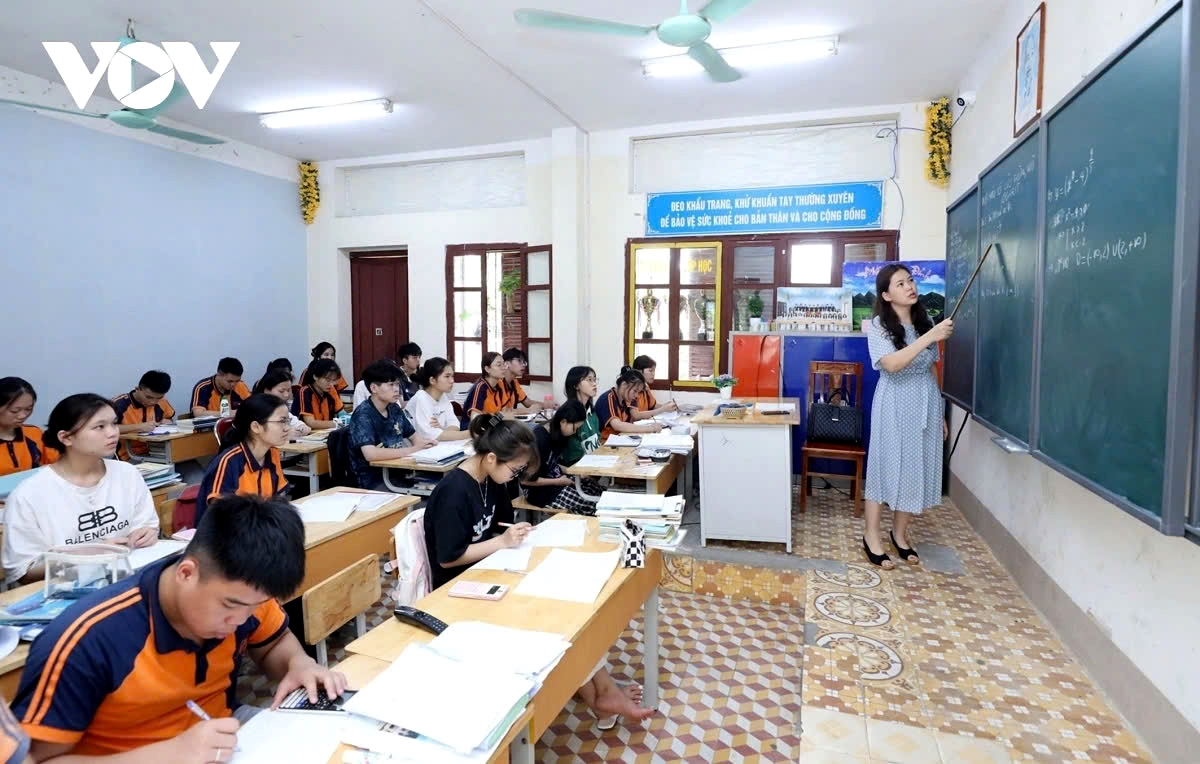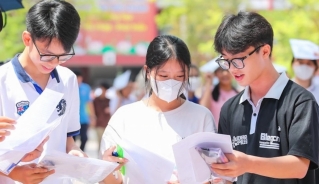Schools suspend academic tutoring as strict regulations are imposed
VOV.VN - Many schools in Hanoi have announced a halt to academic tutoring after the Ministry of Education and Training (MoIT) promulgated a new circular (Circular 29) which seeks to impose stricter regulations on the practice.
Tutoring suspension

Following the 2025 Lunar New Year holiday (Tet), many schools in the capital have sent notifications to parents regarding the adjustment of timetables and the suspension of in-school academic tutoring in compliance with the MoIT’s new regulations which are scheduled to take effect as of February 14.
Nguyen Khac Ly, deputy principal of Phung Khac Khoan High School in Thach That district, says that during the year-end review meeting held before the festive break, the school management informed parents about the suspension of fee-based extra classes.
Van Quan Secondary School in Ha Dong district, Hai Boi Secondary School in Dong Anh district, and Ngo Si Lien Secondary School in Hoan Kiem district, also issued similar notices.
Hoang Chi Sy, principal of Luu Hoang High School in Ung Hoa district, shares that his school has made the decision to halt extra teaching activities right after the Tet holiday, rather than continuing until February 14 and then stopping midway through the new term.
“Currently, we are waiting for instructions from the Hanoi Department of Education and Training,” says the principal.
Stricter regulations
Tutoring is common in Asian countries, including in Vietnam, where it mainly focuses on key subjects like Math, Literature, and Foreign Languages. Although the Government has regulations to limit it, the demand from parents and students remains high.
One of the MoIT’s new regulations featured in Circular 29 stipulates that private tutoring is not allowed for primary school students, with the exception of classes related to arts, sports, and life skills training. Teachers are prohibited from providing paid tutoring outside of school for students that they are assigned to teach in class.
In addition, public school teachers are not allowed to manage or operate private tutoring services outside of school.
Free tutoring is only allowed for certain groups of students, such as those with failing grades, students selected for academic competitions, and final-year students preparing for entrance and graduation exams who voluntarily register.
These changes have seen many parents left worried that their children will lack preparation for major exams when tutoring is no longer available. Indeed, some have already sought private tutors or external tutoring centres to ensure their children’s learning is not interrupted.
Final-year students of high schools have expressed concern about the lack of support in preparing for crucial exams, fearing that this change may negatively impact their test results.
Additional solutions
Widespread private tutoring causes public concern and does damage to the image of teachers, said MoIT Deputy Minister Pham Ngoc Thuong at a meeting held in Hanoi on February 6.
He emphasised that the MoIT will not ban tutoring entirely, but will instead only prohibit violations in the organisation and management of such activities.
The Ministry holds the view that tutoring must not affect the delivery of the official school curriculum, meaning that teachers cannot reduce or repeat content from regular classes. Furthermore, tutoring should seek to prioritise students' interests, whilst neither teachers nor schools are allowed to coerce students into attending in any form, said the Deputy Minister.
Experts say that the prohibition placed on certain forms of private tutoring will prevent academic pressure and overload; ensure educational equity; protect the integrity of formal education; prevent coercion and unethical practices; safeguard the image of teachers; and encourage self-study and innovative teaching.
According to the Deputy Minister, the Circular is one of the solutions to regulate tutoring, although it is not sufficient on its own. Moving forward, he said, the MoIT would move to introduce additional measures, such as improving teachers’ skills and teaching methods, and gradually fostering a habit of self-study among students.



